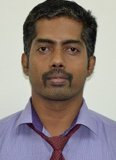
Speakers
SPEAKERS |
Prof. Dongrui Wu IEEE Fellow Huazhong University of Science andTechnology, China | Biography: Dongrui Wu received a B.E in Automatic Control from the University of Science and Technology of China, Hefei, China, in 2003, an M.Eng in Electrical and Computer Engineering from the National University of Singapore in 2006, and a PhD in Electrical Engineering from the University of Southern California, Los Angeles, CA, in 2009. He is now Professor and Deputy Director of the Key Laboratory of the Ministry of Education for Image Processing and Intelligent Control, School of Artificial Intelligence and Automation, Huazhong University of Science and Technology, Wuhan, China. Prof. Wu's research interests include affective computing, brain-computer interface, computational intelligence, and machine learning. He has 150 publications (6,400+ Google Scholar citations; h=39), including a book "Perceptual Computing" (Wiley-IEEE Press, 2010), and five US/PCT patents. He received the IEEE International Conference on Fuzzy Systems Best Student Paper Award in 2005, the IEEE Computational Intelligence Society (CIS) Outstanding PhD Dissertation Award in 2012, the IEEE Transactions on Fuzzy Systems Outstanding Paper Award in 2014, the North American Fuzzy Information Processing Society (NAFIPS) Early Career Award in 2014, the IEEE Systems, Man and Cybernetics (SMC) Society Early Career Award in 2017, and the IEEE SMC Society Best Associate Editor Award in 2018. He was a finalist of the IEEE Transactions on Affective Computing Most Influential Paper Award in 2015, the IEEE Brain Initiative Best Paper Award in 2016, the 24th International Conference on Neural Information Processing Best Student Paper Award in 2017, the Hanxiang Early Career Award in 2018, and the USERN Prize in Formal Sciences in 2019. He was a selected participant of the Heidelberg Laureate Forum in 2013, the US National Academies Keck Futures Initiative (NAKFI) in 2015, and the US National Academy of Engineering German-American Frontiers of Engineering (GAFOE) in 2015. His team won the First Prize of the China Brain-Computer Interface Competition in 2019. Prof. Wu is an Associate Editor of the IEEE Transactions on Fuzzy Systems (2011-2018; 2020-), the IEEE Transactions on Human-Machine Systems (since 2014), the IEEE Computational Intelligence Magazine (since 2017), and the IEEE Transactions on Neural Systems and Rehabilitation Engineering (since 2019). He was the lead Guest Editor of the IEEE Computational Intelligence Magazine Special Issue on Computational Intelligence and Affective Computing, and the IEEE Transactions on Fuzzy Systems Special Issue on Brain Computer Interface. He is a Senior Member of the IEEE, a Board member and Distinguished Speaker of the NAFIPS, and a member of IEEE Systems, Man and Cybernetics Society Brain-Machine Interface Systems Technical Committee, IEEE CIS Fuzzy Systems Technical Committee, Emergent Technologies Technical Committee, and Intelligent Systems Applications Technical Committee. He has been Chair/Vice Chair of the IEEE CIS Affective Computing Task Force since 2012. Speech TItle: Efficient Optimization of Fuzzy Systems Abstract: Fuzzy systems have been widely used in classification and regression. However, for big data, traditional evolutionary algorithm based and full-batch gradient descent based optimization strategies become too costly. This talk first introduces functional similarity/equivalence between fuzzy systems and classical machine learning models such as radial basis function network, mixture of experts. Then, it extends their optimization techniques, such as mini-batch gradient descent, DropOut, Batch normalization and Adam, to the optimization of fuzzy systems. |
Prof. Yao Liang Indiana University Purdue University Indianapolis (IUPUI), USA | Biography: Yao Liang received his B.S. degree in Computer Engineering and M.S. degree in Computer Science from Xi’an Jiaotong University, Xi’an, China. He received his Ph.D. degree in Computer Science from Clemson University, Clemson, USA, in 1997.
He is currently a Professor in the Department of Computer Science, Indiana University Purdue University Indianapolis (IUPUI), USA. His research interests include wireless sensor networks, Internet of Things, cyberinfrastructure, open data and model integration, data engineering, machine learning, neural networks, and distributed systems. His research projects have been funded by NSF. He has received the 2019 Glenn W. Irwin, Jr., M.D., Research Scholar Award, IUPUI. He was a General Co-Chair of The International Conference on Big Data Engineering (BDE) in 2019-2022. Dr. Liang has given invited talks and lectures at various universities and conferences in US, Europe and China. Speech TItle: Open Data and Model Integration in the Big Data Era Abstract: Open data and model integration is an urgent and important challenge for researchers in many scientific domains to make better and more effective use of growingly available heterogeneous data. To address this challenging issue, CyberWater is an open data and model integration framework which is developed for studying complex environmental and water problems. CyberWater supports online access to diverse scientific data sources in an automated manner, and novel access to high-performance computing resources on demand for users’ computational expensive modeling tasks. In this talk, I will present our design and development of the CyberWater, a novel cyberinfrastructure system for open data and model integration, which will significantly simplify complex data/model integration and model coupling to facilitate large-scale interdisciplinary collaborations. Some examples are given to illustrate the capacity of CyberWater framework. |
Prof. Weishan Zhang China University of Petroleum (East China), China | Biography: Weishan Zhang, professor of China University of Petroleum (East China). His main research directions are big data intelligent processing, artificial intelligence, etc. He is the director of Credible Intelligent Lab of Shandong Province. He has published more than 100 papers. Currently H index is 26, i10 index is 76. He is the PI/Co-PI of a number of projects such as the National Natural Science Foundation of China and the National Key R&D Program. For his research on federated intelligence, he won the first prize of Science and Technology Progress Award of Qingdao city, the second prize of Shandong Province Science and Technology Progress Award, the third prize of Wu Wenjun Artificial Intelligence Science and Technology Progress Award. Speech TItle: Brain Cognition based Model Factory for Pedictive Maintainance by Combining LLMs with Small Models Abstract: Traditional solutions for Pedictive Maintainance suffers from low accuracy and adaptabilities for new use cases, hard to fully make use of multimodal maintainance data, etc. Inspired by brain cognition and Large Language Models (LLMs), we propose a brain cognition driven model factory for pedictive maintainance by combining LLMs with small scale models. A model factory is designed to generated appropriate small analysis models for correponding data, guided by a LLM fine tuned with domain specific pedictive maintainance knowledge. Evaluations using Steel Plates Faults dataset, Electric Fault-Line Detection dataset, UCI Mechanical Analysis dataset, CWRU Bearing dataset, and a self-made Air-Conditioning data show that the proposed BC-MF approach has better performance for either LLM model, or small scale model itself. Additionally, this BC-MF apporoach can be a helpful systematic solution guide for pedictive maintainance. |
Prof. Kannimuthu Subramaniyam IEEE Senior Member Karpagam College of Engineering, India | Biography: KANNIMUTHU SUBRAMANIYAM is currently working as Professor in the Department of Information Technology at Karpagam College of Engineering, Coimbatore, Tamil Nadu, India. He is also an In-Charge for the Center of Excellence in Algorithms. He is a Senior IEEE Member. He is an IBM Certified Cybersecurity Analyst. He did PhD in Computer Science and Engineering at Anna University, Chennai. He did his M.E (CSE) and B.Tech (IT) at Anna University, Chennai. He has more than 17 years of teaching and industrial experience. He is the recognized supervisor of Anna University, Chennai. Five PhD candidates completed their research under his guidance. He is now guiding 8 PhD Research Scholars. He has published 60 (SCI:25 and Scopus:46) research articles in various International Journals. He published 2 books("Artificial Intelligence", "LinkedList Demystified: A Placement Perspective") and 3 Book Chapters (Scopus Indexed). He is acting as mentor / consultant for DeepLearning.AI, MaxByte Technologies Dhanvi Info Tech and Hubino. He is the expert member for AICTE Student learning Assessment Project (ASLAP). He has presented a number of papers in various National and International conferences. He has visited more than 100 Engineering colleges and delivered more than 170 Guest Lectures on various topics. He is the reviewer for 80 Journals and 3 Books. He has successfully completed the consultancy project through Industry-Institute Interaction for ZF Wind Power Antwerpen Ltd., Belgium. He has received funds from CSIR, DRDO and ISRO to conduct workshops and seminars. He has completed more than 610 Certifications (41 Specializations and 4 Professional Certifications) in Coursera, Hackerrank and NPTEL on various domains. He has guided a number of research-oriented as well as application-oriented projects organized by well-known companies like IBM. His research interests include Artificial Intelligence, Data Structures and Algorithms, Machine Learning, Computer Vision, Big Data Analytics, Blockchain and Virtual Reality. Speech TItle: The Evolution of Hate Speech Detection: A Deep Learning Perspective Abstract: In today's digital landscape, the proliferation of hate speech creates significant challenges to fostering inclusive and safe online communities. Over the years, the pursuit to combat this prevalent issue has seen remarkable progress, particularly with the advent of deep learning techniques. This keynote aims to elucidate the transformative expedition of hate speech detection, emphasizing the pivotal role played by deep learning methodologies. The keynote will get on an insightful exploration, tracing the historical path of hate speech detection methods and their evolution. From traditional rule-based systems to the contemporary application of deep learning algorithms, we will navigate through the milestones, breakthroughs, and pivotal moments that have shaped this field. The keynote will emphasize the paradigm shift facilitated by deep learning models by highlighting the effectiveness and limitations of earlier approaches. This talk will explore the mechanisms of neural networks, recurrent architectures, and cutting-edge advancements in natural language processing that have empowered these models to discern subtle nuances within hateful content. Moreover, the discussion will extend beyond technical expertise, addressing ethical considerations, biases, and challenges essential to employing deep learning in hate speech detection. Drawing from real-world case studies and research insights, this keynote seeks to inspire a deeper understanding of the ongoing evolution in hate speech detection. |
Inviting & Updating



